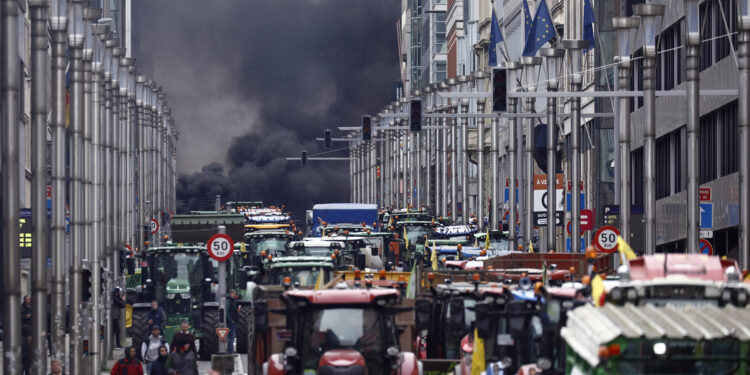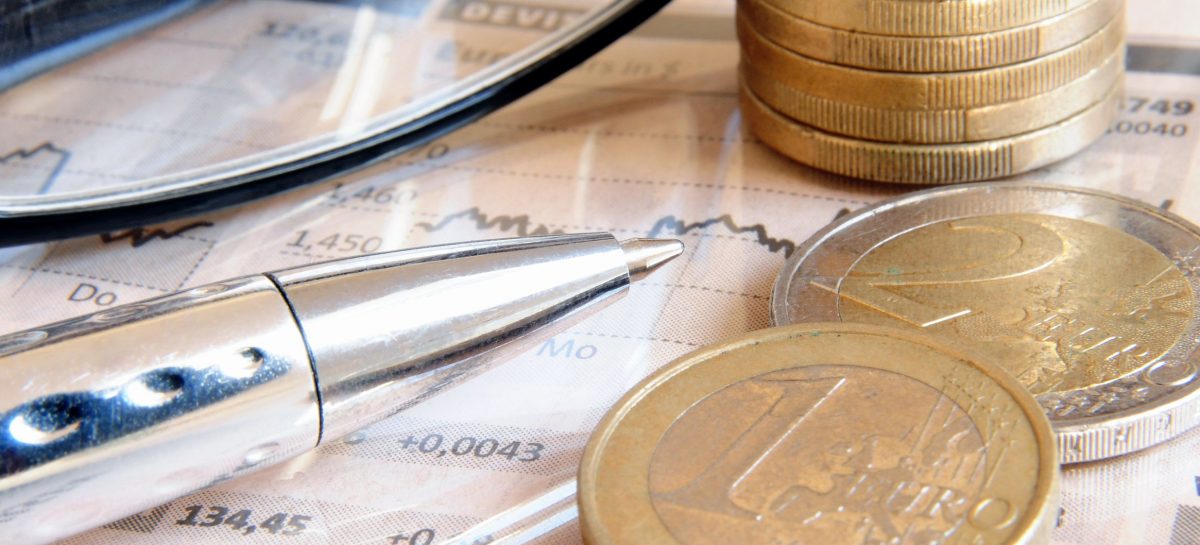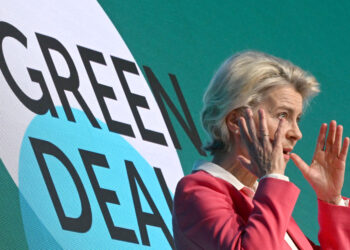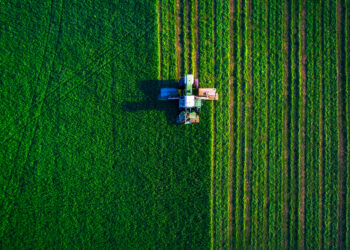Brussels – The EU “is forcing us to eat synthetic meat and insects,” the EU “is destroying water infrastructure and wheat fields.” The European Green Deal is “against agriculture.” A study by the European Fact-checking Standard Network (EFCSN) showed how farmers’ protests in recent months have been exploited by some to spread misinformation and undermine climate action. And it has exposed the perpetrators: four times out of five, those using these distorted narratives are part of far-right political parties.
Between February and March 2024, farmers’ protests flared up in several EU countries. Driven by several real reasons, including concerns over Brussels’ environmental agricultural policies and economic uncertainty, farmers took to the streets demanding a fair price for their products, more support to be accompanied in the transition, and administrative and bureaucratic streamlining of the CAP. According to EFCSN Newtral, however, “misinformation has permeated the discourse, adding new layers of complexity to the narratives surrounding the protests.”
Integrating reports from the European Digital Media Observatory, Elections24Check and EUvsDisinfo, the study filtered hundreds of search results through some keywords, recognizing anti-climate action narratives in the most interacted social media posts in all the languages analyzed. According to EFCSN, false claims about the protests, including accusations of the EU promoting lab-farmed meat or conspiracy theories about secret government actions to change the climate, “did not just obscure the protesters’ real demands, but also amplified existing scepticism and suspicion of the EU and its climate policies.”
The strategy is a winning one: indeed, the analysis reveals that narratives that specifically oppose EU policies spread more pervasively and create more interactions than more general criticisms against climate action. Those who have used this trend to their advantage have been mostly the European far right. According to the report, 81.6 per cent of the posts targeting climate action and the EU in the most popular posts on farmers’ protests were by far-right politicians.
Alternative für Deutschland (AfD) in Germany, Marine Le Pen’s Rassemblement National in France, to a lesser extent Matteo Salvini’s Lega in Italy. And the Polish Confederation of Freedom and Independence, Sovereign Poland, the Dutch Farmer-Citizen Movement, and Vox in Spain. Of these, the parties with at least one MEP in Brussels belong to the two radical right-wing political groups, Identity and Democracy (ID) and the European Conservatives and Reformists (ECR).

In Italy, the report noted the spread of fake news that local authorities were paying farmers to abandon their land in Emilia Romagna. Alternatively, several misleading claims inaccurately suggested that human activity was not contributing significantly to climate change or that storms of birds in Poland had died from eating Ukrainian wheat. Just peruse the “More Italy, Less Europe” campaign launched by the Lega for the June 6-9 European elections: some of the memes seem to have fallen into the fake news trap and revolve precisely around false information about insect or lab-produced food as opposed to traditional Italian agriculture and Mediterranean culture.
Ultimately, the farmers’ claims, “about half of which were climate-related,” have converged “toward a single meta-narrative, calling for a substantial reorientation or termination of European climate policies.” Not only has the European Commission already backtracked on some of the measures related to climate change mitigation and biodiversity protection, but some of the far-right parties that have ridden on the coattails of the farmers’ protests are gaining considerable support ahead of the European election.
These parties intend to pursue until the last day the strategy unmasked by the EFCSN report: tomorrow (June 4), 48 hours before the opening of the polls in several EU countries, several transnational and far-right-related agricultural protest groups will march in Brussels. The Farmers Defense Force of the Netherlands, Landwirtschaft verbindet Deutschland (known as LSV, or United Agriculture Germany), and the Institute of Agricultural Economics of Poland, with explicit demands to withdraw the European Green Deal.
English version by the Translation Service of Withub







